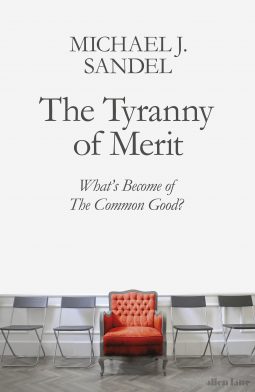
“These are dangerous times for democracy. We live in an age of winners and losers, where the odds are stacked in favour of the already fortunate. Stalled social mobility and entrenched inequality give the lie to the promise that “you can make it if you try”. And the consequence is a brew of anger and frustration that has fuelled populist protest, with the triumph of Brexit and election of Donald Trump.

A couple quotes from the book.
Our technocratic version of meritocracy severs the link between merit and moral judgment. In the domain of the economy, it simply assumes that the common good is defined by GDP, and that the value of people’s contributions consists in the market value of the goods or services they sell. In the domain of government, it assumes that merit means technocratic expertise. This can be seen in the growing role of economists as policy advisors, the increasing reliance on market mechanisms to define and achieve the public good, and the failure of public discourse to address the large moral and civic questions that should be at the center of political debate: What should we do about rising inequality? What is the moral significance of national borders? What makes for the dignity of work? What do we owe one another as citizens?
Beyond hollowing out public discourse, the reign of technocratic merit has reconfigured the terms of social recognition in ways that elevate the prestige of the credentialed, professional classes and depreciate the contributions of most workers, eroding their social standing and esteem. It is this aspect of technocratic merit that contributes most directly to the angry, polarized politics of our time.

The European Union is doing the dirty work for the Biden administration. They know that they would never be able to get such a law through the current Congress. Maybe after 2024?
On August 25th, a new law known as the “Digital Services Act” went into effect in the European Union. Under this new law, European bureaucrats will be able to order big tech companies to censor any content that is considered to be “illegal”, “disinformation” or “hate speech”. That includes content that is posted by users outside of the European Union, because someone that lives in the European Union might see it.

My therapist told me “write letters to the people you hate and then burn them.”
Did that, but now I don’t know what to do with the letters.
Posted this late but have dated it for the 31st.